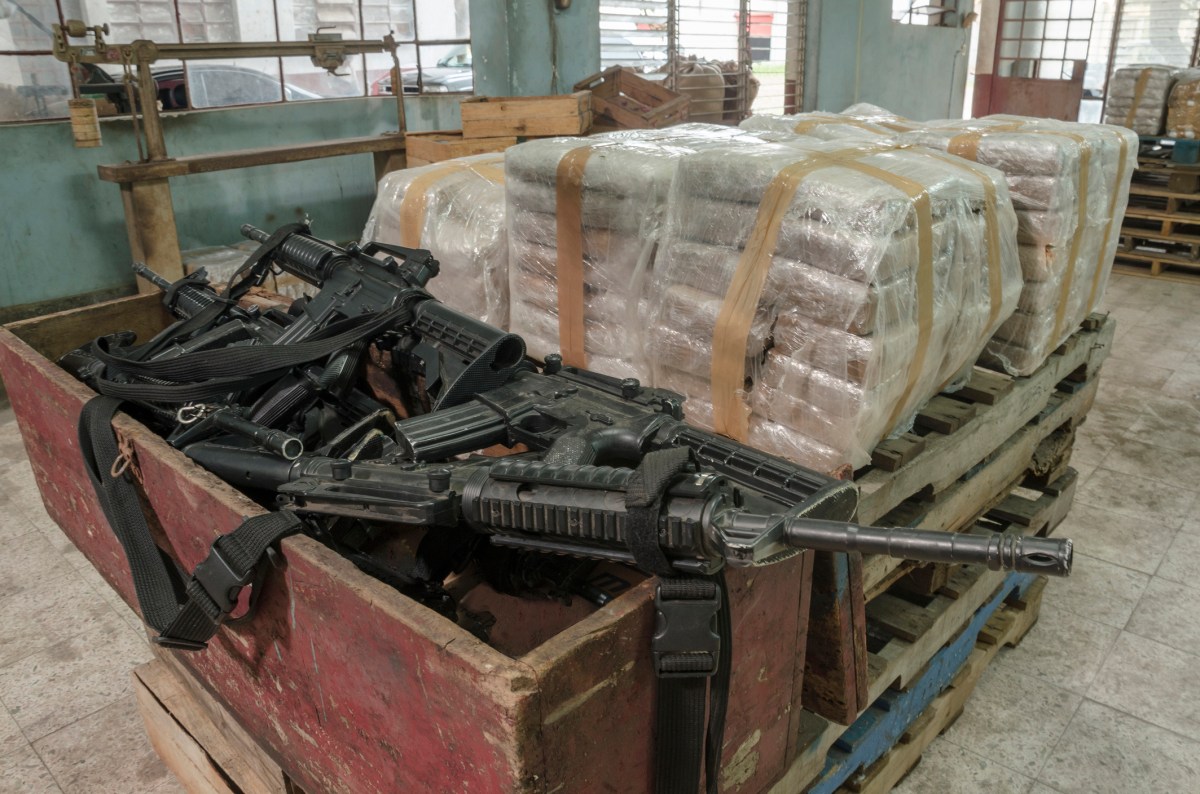Crime-fighting efforts in CARICOM backfiring – Caribbean Life
The strategy promoted to help reduce gang violence in several CARICOM states, including Guyana, Jamaica, Trinidad & Tobago, and St. Lucia, was rarely employed to do so, according to a recent report from the United Nations (UN).
The release stated that despite the advocating for a public health response, and although several Caribbean country governments had simultaneously stepped up their “tough-on-crime” measures of enacting states of emergency, promulgating anti-gang legislation, and instituting anti-crime units of authorizing heavy-handed policing strategies, there was discontentment with the strategy, the reactions to the police’s heavy-handed tactics were not uniform.
“While tough-on-crime policing strategies have resulted in an increase in arrests and drug seizures, an erosion of trust has occurred within the heavily policed communities, and there is also concern regarding extrajudicial violence.”
The study revealed that the extrajudicial executions by the police have resulted in St. Lucia being subject to US Leahy Law sanctions. In addition, there have been reports of extrajudicial violence in Jamaica and Guyana. However, Trinidad & Tobago did not discuss extrajudicial executions.
The Leahy Law states that the US Departments of State and Defense are not allowed to arm foreign security force units that commit human rights violations without consequence.
The research reveals that the four countries’ efforts to combat gangs have had unintended but harmful consequences. It added, too, that the “Caribbean, US, and EU-backed measures to crack down on gang leadership are also generating negative outcomes.”
The report revealed that “several national governments across CARICOM region have expressed concern that drug trafficking, gang fragmentation, and insecurity could get worse in the coming years, as some gang leaders lower their profile and go underground.” Noted also were the Dearing members who are replacements for imprisoned or deceased gang members who are even more violent with contenders.
The UN reports also stated that efforts to apprehend Trinidad & Tobago gang leaders had significantly increased, although there are unfavorable consequences that go with this. Heavy-handed measures to tackle criminal groups such as drug cartels and gangs can trigger more violence, as in the case of Trinidad and Tobago.
The assessment from the Strategic Services Agency (SSA) has forecasted “a new violent crime wave” in 2021, and there was a rise in the number of homicides, shootings, and other violent crimes. Since then, gang members have been getting access to higher-caliber weapons from the US, Venezuela, and even domestic sources at times. The crime is not marginalized; gangs have expanded into new activities, including fraud, money laundering, robbery, human trafficking, and illicit gaming.
Caribbean authorities have explored a range of efforts and informal negotiations to implement preventative measures; however, responses on their effectiveness are mixed. For example, “preventative approaches that deploy trusted intermediaries to disrupt or interrupt violence before it escalates are credited for some positive outcomes.”
Another area that has manifested and exhibited positive results was “Cure Violence,” a group that treats violence as a public health problem. They have demonstrated positive outcomes in both Jamaica and Trinidad and Tobago.”
Other outreach programs, such as Resolve Enmity, Articulate Solutions, Organize Neighborhoods (REASON), and Building Blocks, are no longer in operation due to a lack of funding. Organizations such as REASON are credited with helping to reduce homicides by 45 percent in 16 neighborhoods. Project Building Block has also done a good job reducing shootouts between 2020 and 2022.
The study mentioned that organized crime and gangs are also fostered by government corruption, state apathy, and societal neglect. It revealed that societal neglect has occurred in the Caribbean since the middle of the 20th century. “Whether transnationally connected or operating in a highly localized manner, most gangs emerge in response to criminal opportunity and in conditions of social and economic deprivation.”
The study also showed how dishonest public servants have enabled criminal gangs to operate. “While a sensitive topic, it is widely recognized that Caribbean gangs frequently collude with state actors and private businesses. In exchange, gang leaders may be granted privileged access to public contracts (e.g., construction) and protection from investigation, arrest, and prosecution.”
The research noted also that few well-connected gangs help in the transshipment of illegal goods, including weapons, narcotics, smuggled immigrants, and persons who have been trafficked, “tacit or over support from well-placed politicians, corrupt customs officials, and complicit police officers.”
The report said that the contribution of Caribbean political and corporate leaders to the facilitation of gang activity and illicit markets is not well documented. It added, “Some gangs may also acquire ammunition from local police and defense forces, as has been reported in Trinidad and Tobago.”
In discussing the UN report with the Caribbean Life Newspaper, Board Chair of the Institute of Caribbean Studies and member of the Crime and Security Committee, Herb Nelson, stated that he was not surprised about the corruption and lack of integrity because there is no documentation on any statistics to keep up with the activities of the criminals. Nelson also noted that human trafficking was the number one crime problem that CARICOM faces, along with drugs and weapons.
The chairman said the Caribbean is a “soft target” for the cartels because they need grounds and rooms for money laundering and ways to expand on their money.
Nelson expressed also that the Caribbean should realize that the overwhelming number of weapons comes out of America. “The weapons are incoming, and the drugs and humans are outgoing,” he added.
In his response to the UN survey, Dr. Rupert Francis, co-leader of the Global Jamaica Diaspora Council, added his comment, noting that CARICOM leaders must find a way to resolve the issue and provide data from 2023-2024 to achieve goals and prevent the escalation.

